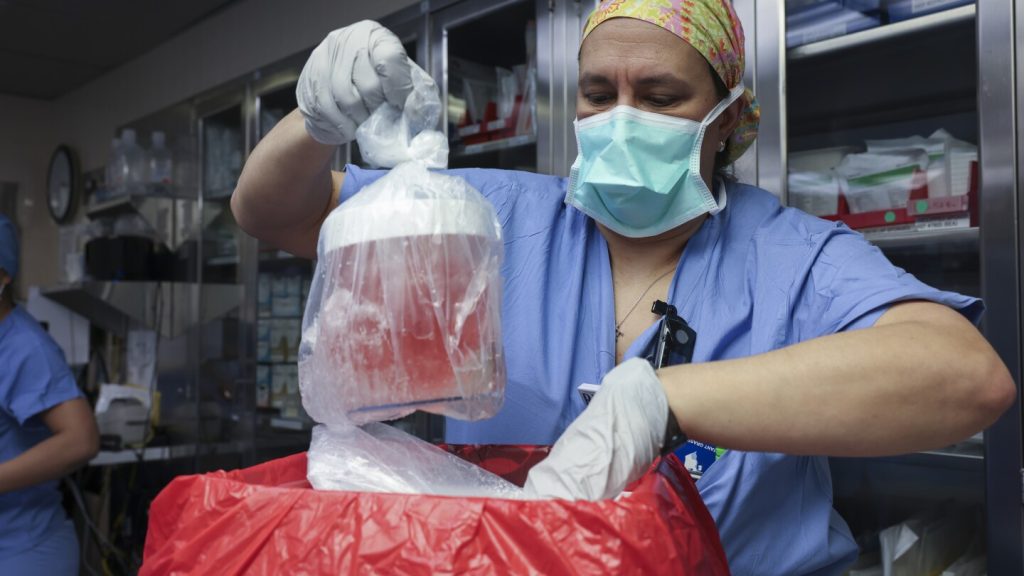The first recipient of a genetically modified pig kidney transplant, Richard Slayman, has passed away nearly two months after the groundbreaking procedure was performed at Massachusetts General Hospital. Slayman, 62, had undergone the transplant in hopes of finding an alternative to dialysis, which he had to resume after his initial kidney transplant in 2018 showed signs of failure. The transplant team at the hospital expressed their sadness at Slayman’s passing but clarified that they did not have any indication that his death was a result of the transplant.
Slayman’s family released a statement expressing gratitude to his doctors for their efforts in leading the xenotransplant that gave them seven more weeks with him. They highlighted Slayman’s hope that his experience could provide hope to the thousands of people in need of transplants to survive. Xenotransplantation, which involves using cells, tissues, or organs from animals to heal human patients, has seen recent advancements with genetically modified pigs to make their organs more compatible with humans. With over 100,000 people on the national waiting list for transplants, the need for alternative solutions like xenotransplantation is becoming increasingly urgent.
The Weymouth, Massachusetts resident was the first living person to receive a pig kidney transplant, marking a significant milestone in the field of transplantation. Previous attempts at pig organ transplants had only been successful in brain-dead donors, and two men who received heart transplants from pigs had unfortunately died within months. Slayman’s decision to undergo the experimental procedure was driven by the hope of finding a long-term solution to his kidney issues and providing inspiration to others in similar situations.
Massachusetts General Hospital has been at the forefront of medical advancements, and Slayman’s case is no exception. The hospital’s transplant team had high hopes for the pig kidney’s longevity, estimating that it would last for at least two years. However, Slayman’s health complications and eventual passing have underscored the challenges and risks associated with such innovative procedures. Despite the outcome, Slayman’s family remains grateful for the extra time they had with him and the impact his story may have on advancing medical research and treatment options.
The field of xenotransplantation has gained momentum in recent years, with scientists and medical professionals exploring ways to make animal organs more suitable for human transplants. While the process is still in its experimental stages, the potential benefits for patients on transplant waiting lists are significant. With thousands dying each year before receiving a transplant, the need for alternative solutions like xenotransplantation is becoming increasingly urgent. Slayman’s story serves as a reminder of the importance of continued research and innovation in the medical field to improve outcomes for patients in need of life-saving procedures.
In conclusion, Slayman’s journey with the genetically modified pig kidney transplant has sparked discussions about the future of organ transplantation and the potential of xenotransplantation to address the growing demand for organ donations. While his passing is a reminder of the challenges and uncertainties of experimental procedures, his family’s message of hope and gratitude resonates with the broader medical community. As researchers and medical professionals continue to push the boundaries of science and technology, the possibility of using animal organs for human transplants offers a glimmer of hope for patients waiting for life-saving procedures.


